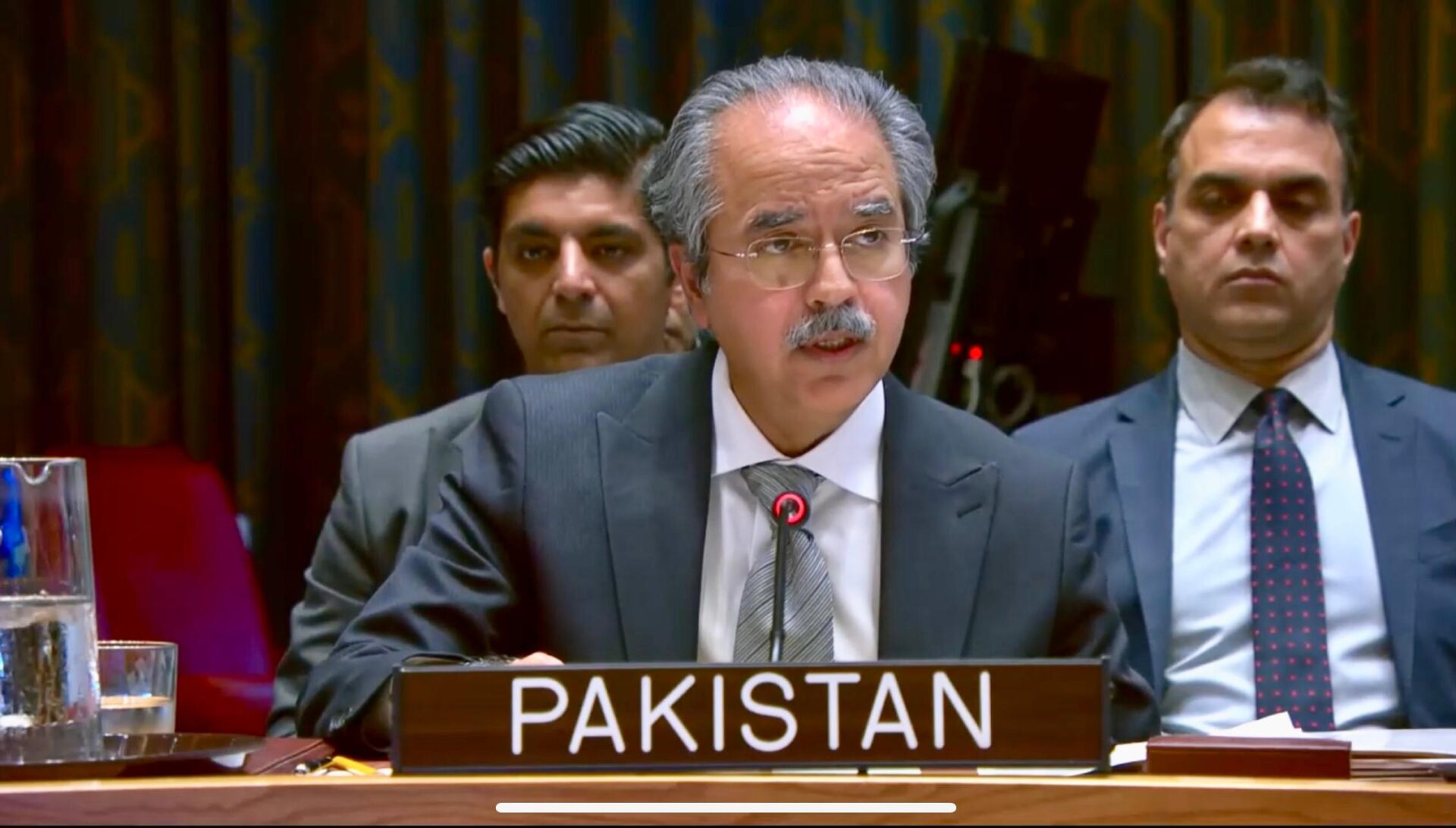
United Nations, 17 September 2025(Kamran Raja): Ambassador Asim Iftikhar Ahmed, Pakistan’s Permanent Representative to the United Nations, addressed the UN Security Council meeting on the situation in Afghanistan today. In his statement, Ambassador Ahmed expressed condolences over the recent earthquake in eastern Afghanistan, reaffirming Pakistan’s solidarity with the Afghan people. He noted that Pakistan had provided 105 tons of humanitarian assistance to the affected families. Highlighting the humanitarian and economic challenges in Afghanistan, the Ambassador stressed that sanctions, a collapsed banking system, inadequate aid, poverty, narcotics, terrorism, and human rights concerns continue to define the Afghan landscape. He urged the international community to close the funding gap in the 2025 Humanitarian Needs and Response Plan, which has received only 27% of the required $2.42 billion.
Ambassador Ahmed emphasized that sanctions regimes must not fall prey to political considerations and underscored the importance of reviving Afghanistan’s economy, banking system, and pathways for unfreezing assets. He called for UN-led initiatives to prevent poppy cultivation through alternative livelihoods. On regional cooperation, he noted Pakistan’s active engagement with the Afghan Interim Government to enhance trade, counter-narcotics, and connectivity, including the Trans-Afghan Railway project. He highlighted recent trilateral and quadrilateral dialogues involving Pakistan, Afghanistan, China, Uzbekistan, Iran, and Russia as examples of constructive engagement.
Turning to security concerns, Ambassador Ahmed underscored that terrorism emanating from Afghan soil remains the gravest threat to Pakistan’s national security. He cited credible evidence of collaboration among terrorist groups such as ISIL-K, Al-Qaeda, TTP, ETIM, BLA, and the Majeed Brigade. He further revealed that nearly 70 social media accounts traced to Afghan IP addresses were spreading propaganda, requiring cooperation from social media platforms.
The Ambassador urged the UN Security Council to act swiftly on Pakistan and China’s joint request to designate the BLA and Majeed Brigade under the 1267 Sanctions Committee. He warned that the TTP, with nearly 6,000 fighters, remains the largest UN-listed terrorist entity in Afghanistan, responsible for cross-border infiltration and attacks on Pakistan.
Ambassador Ahmed also reiterated Pakistan’s longstanding commitment to Afghan refugees but underlined the need for greater international responsibility-sharing and fulfillment of third-country resettlement commitments.
On human rights, he called on the Taliban authorities to fulfill international obligations, stressing that restrictions on women and girls are inconsistent with Islamic traditions.
“Isolation and disengagement serves no one’s interest,” Ambassador Ahmed stated, reaffirming Pakistan’s support for a UN-led Doha Process with a clear, balanced, and comprehensive roadmap.
He concluded by reiterating that no country desires peace and stability in Afghanistan more than Pakistan, and no country has suffered more from decades of Afghan conflict. Pakistan remains committed to supporting a peaceful and prosperous Afghanistan in the best interest of the region and the world.